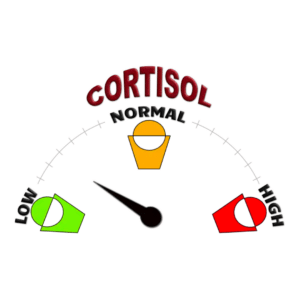Psoriasis, an autoimmune condition affecting the skin, is a result of an overactive immune system mistakenly attacking healthy skin cells. But did you know that the link between psoriasis and your gut health might be more significant than you think?
The Gut-Immune System Connection
The gut plays a crucial role in regulating the immune system, and imbalances in the gut microbiota can lead to an overactive immune response, potentially contributing to the development or worsening of psoriasis. Inflammatory pathways associated with both gut health and psoriasis overlap, highlighting the intricate relationship between the two.
Inflammation: A Common Denominator
Chronic inflammation is a hallmark of psoriasis, and the gut can play a role in fueling this inflammatory response. Issues like dysbiosis, small intestinal bacterial overgrowth, food intolerances, or allergies can lead to inflammation in the gut. This, in turn, compromises the integrity of the intestinal barrier, allowing substances to leak into the bloodstream. These substances can trigger an immune response and inflammation, potentially impacting the skin and contributing to psoriasis.
Nurturing Your Gut for Psoriasis Relief
Taking care of your gut health can potentially alleviate psoriasis flare-ups. Dietary changes, such as adopting an anti-inflammatory diet and excluding triggers like gluten, dairy, and sugar, have shown positive effects for some individuals. Repairing the damage to the intestinal lining is crucial in preventing flare-ups, and this may involve incorporating digestive support, gut-healing nutrients, and targeted probiotics into your regimen.
Understanding Psoriasis: More Than Skin Deep
While the exact cause of psoriasis remains elusive, a combination of genetic, environmental, and immune system factors is believed to contribute to its development. Family history is a significant risk factor, especially if a first-degree relative has psoriasis. Additionally, individuals with one autoimmune condition may be predisposed to others due to shared genetic or environmental factors.
Environmental Triggers and Lifestyle Factors
Various environmental factors can trigger or worsen psoriasis symptoms, including infections, skin injuries, stress, and certain medications. Stress management through relaxation techniques may prove beneficial for individuals dealing with psoriasis. Moreover, there’s a notable association between obesity and psoriasis, with excess body weight contributing to inflammation. Weight loss may help improve symptoms in some cases.
Lifestyle Choices Matter
Smoking and excessive alcohol consumption have been linked to an increased risk of developing psoriasis and may contribute to more severe symptoms. Making healthier lifestyle choices, such as quitting smoking, moderating alcohol intake, and managing stress, can play a pivotal role in managing psoriasis and supporting overall well-being.
In conclusion, the connection between psoriasis and gut health unveils a fascinating interplay between the immune system and the digestive system. Nurturing your gut through a mindful diet and lifestyle choices could potentially offer relief from psoriasis symptoms. As always, consulting with a nutritionist or functional medicine expert can provide personalised guidance tailored to your unique needs and health goals.








